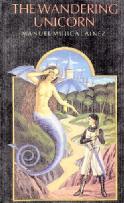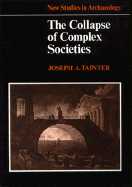 |
OK - I admit it! I was motivated to read this book after seeing the not-so-well-made movie whose only saving grace was the usual competent performance put in by Nick Nolte (in the role of `Doc'). The book, needless to say, stands head and shoulders above its Hollywodized version. It is quite a departure from the usual Steinbeck portraying the dark side of the "American dream" - the hungry migrants from the `dust bowl' trying to make ends meet. This book has an upbeat mood throughout which makes it a pleasure to read - although almost all the characters are still the kind of people whom luck has passed by. Doc, the central character in the novel, is almost a heroic figure. The sequel Sweet Thursday is quite good but somehow doesn't manage to recapture the magic of the original. |
 |
A fable about human folly and the cyclical nature of ``progress'', Miller's novel is an unusual (but wonderful) combination of science fiction and Christian theology. The story begins in a post-nuclear war world. |
 |
I had read a lot about Salinger before I finally managed to read this book from my local American Center Library in Calcutta. And the book didn't disappoint me. I guess every teenager on the threshold of adulthood identifies with Holden Caulfield, the central character. Some parts almost made me cry - especially when Holden talks about the Robert Burns poem ``When a body meet a body, coming through the rye'' - except that he remembers it as ``When a body catch a body, coming through the rye''. I have read elsewhere that the book loses its magic once u grow up - so I have avoided re-reading it :). But who knows, maybe one of these days, I'll try reading it once more - just to see if it can still affect me the way it did once. |
 |
In the Introduction to the book, Jorge Luis Borges had written ``When the true history of our literature is written ... Lainez will at last be seen as a benefactor. ... [He] brings back to contemporary writing the sense of destiny, of adventure with its hopes and fears, the tradition of Stevenson, Hugo and Ariosto... The Wandering Unicorn is not a reconstruction of times past; it is like a glowing dream set in the past". I can hardly put across the beauty of this enchanting novel in a better way. The immortal outcast fairy Melusine - half woman, half serpent - falls in love with the young Aiol and follows him, a protective but frustrated observer, through his knightly education and across 12th century Europe to a dramatic climax to save Jerusalem from Saladin's army. |
  |
I read these two books in the wrong order - but they are both such a pleasure to read, that it really doesn't matter. I must confess that I was never really interested in Roman history (I was more of a Hellenophile) till I came across the book The Caesars by Allan Massie in 1997. This was basically a retelling of Suetonius' Twelve Caesers but Massie did provide his own insightful interpretations of the different personalities. I found the account of a republican Rome giving way to a dictatorship very much relevant to our own times - and got addicted to Roman history (especially that of the late republic and the early empire). Almost at the same time, I was reading Joseph Tainter's Collapse of Complex Societies, which devoted a full chapter to an analysis of the collapse of the Roman Empire - and that got me interested in the socio-economic dynamics of Rome and why it collapsed. This new interest in Roman history gave me the impetus to try Robert Graves' two famous novels recreating of the life and times of the Emperor Claudius. Of course, Graves has brought his own perspective to bear - which may not agree with established historical opinion. But then these books are primarily works of fiction - and taken as such, they are a superb depiction of the loneliness of power, of a ``divine fool'' (as Graves sees Claudius) finding power thrust into his hands by the force of circumstances - but then watches helplessly as all that he loves is taken away from him one by one. As a study of how power alienates the individual wielding it, it makes an interesting comparison with Gabriel Garcia Marquez's Autumn of the Patriarch or Bertolucci's film The Last Emperor. |
 |
Tainter describes nearly two dozen cases of collapse and reviews more than 2000 years of explanations. He then develops a new and far-reaching theory that accounts for collapse among diverse kinds of societies, evaluating his model and clarifying the processes of disintegration by detailed studies of the Roman, Mayan and Chacoan collapses. |
 |
Anything by John Wyndham seems well worth reading - but I strongly urge anyone to read at least the top four: The Kraken Wakes, Day of the Triffids, The Trouble with Lichen and Midwich Cuckoos (listed in the order in which I read them). |
 |
A warren of Berkshire rabbits flee the destruction of their home by a land developer. |
 |
Dirk Gently (or as he was was known in his pre-detective days, Svald Cjelli) is a one-of-a-kind private detective with a belief in the fundamental interconnectedness of all things, a unique relationship with the laws of probability, and a talent for messy divorce investigations. Both in this book and its sequel The Long, Dark Tea-Time of the Soul, he refuses to be hoodwinked by the apparent straightforwardness of a crime and scrupulously sticks to his philosophy of a holistic approach to solving any puzzle, big or small. While this has such unexpected outcomes as Dirk being forced to spend some time in the sunny beaches of Bermuda in search of a cat lost in London (much to the incredulity of the cat's owner when she receives Dirk's bill), it also results in Dirk saving humanity (at no extra charge). So it is no surprise when Dirk, on the trail of gruesome murderer, finds that it is connected with (among other things) the poetry of Coleridge, four-dimensional manifold geometry and the Oxford Regius Professor of Chronology. If all this is too confusing, don't worry - the book (and its sequel) is a delightful read. And at no extra charge, the book discloses the source of J. S. Bach's almost incredible and amazing musical creativity. |